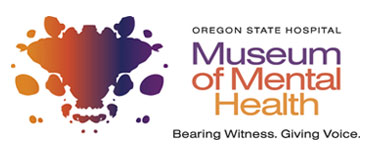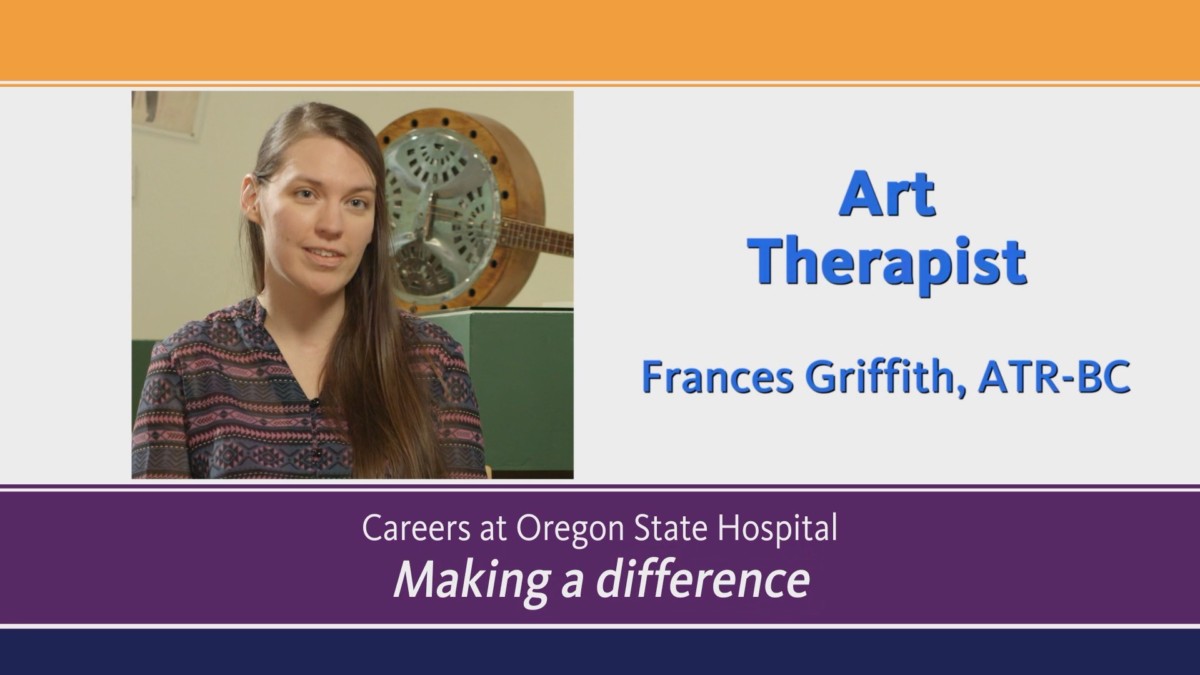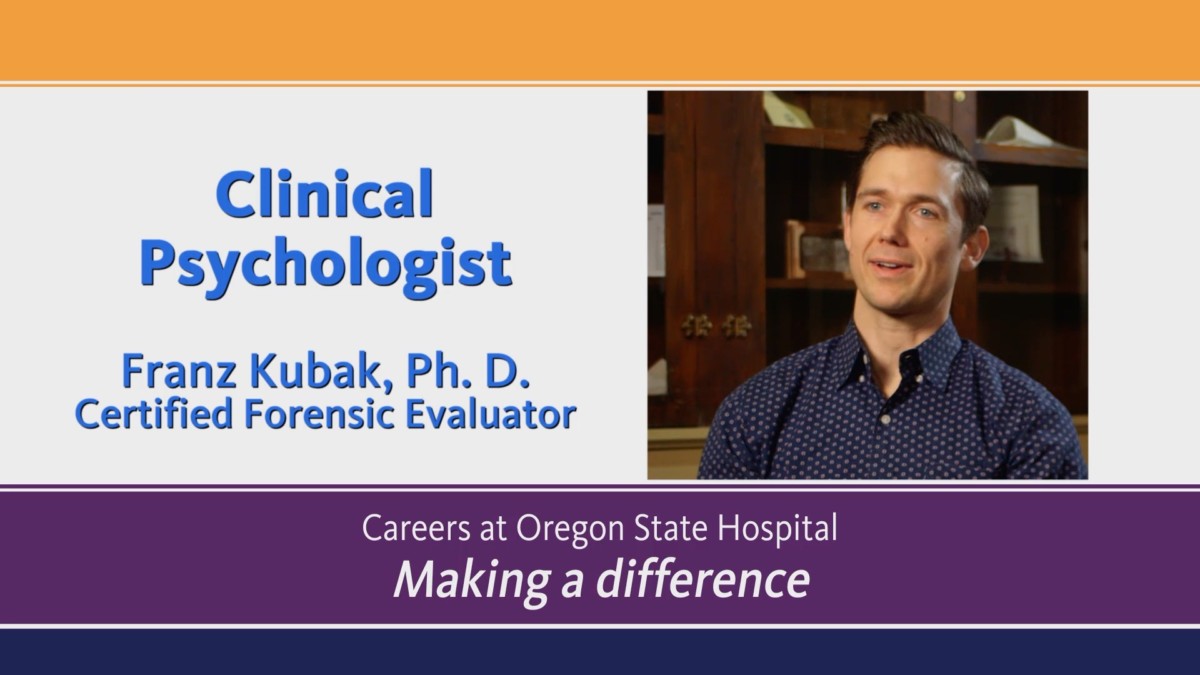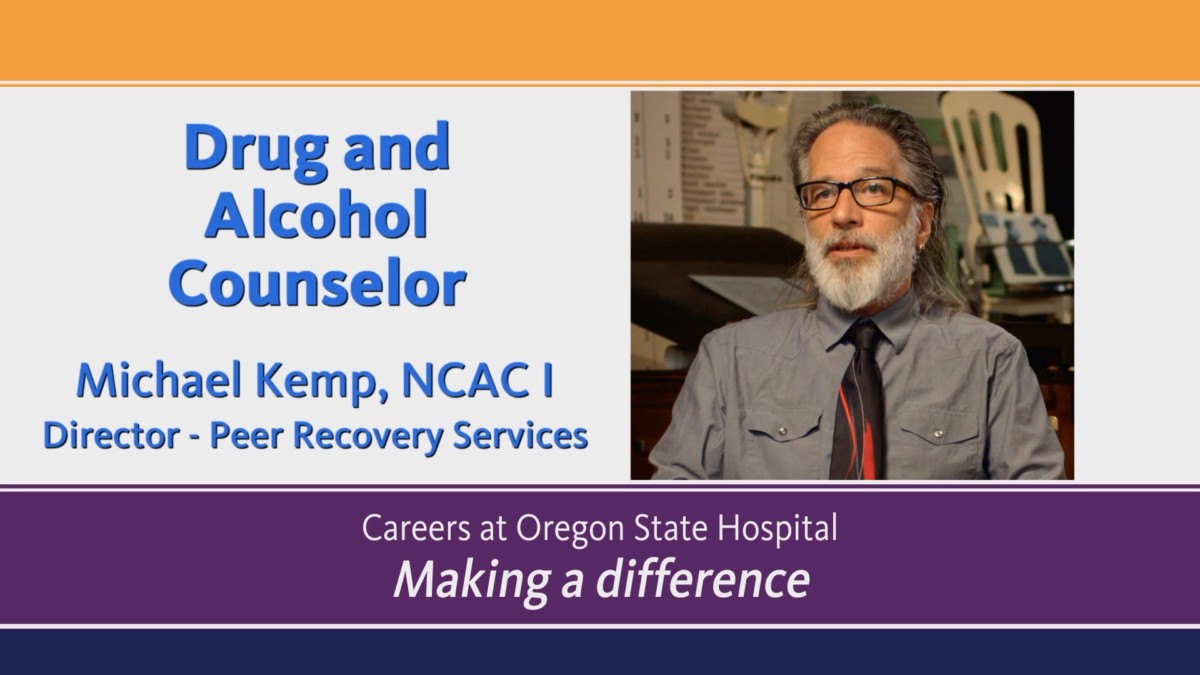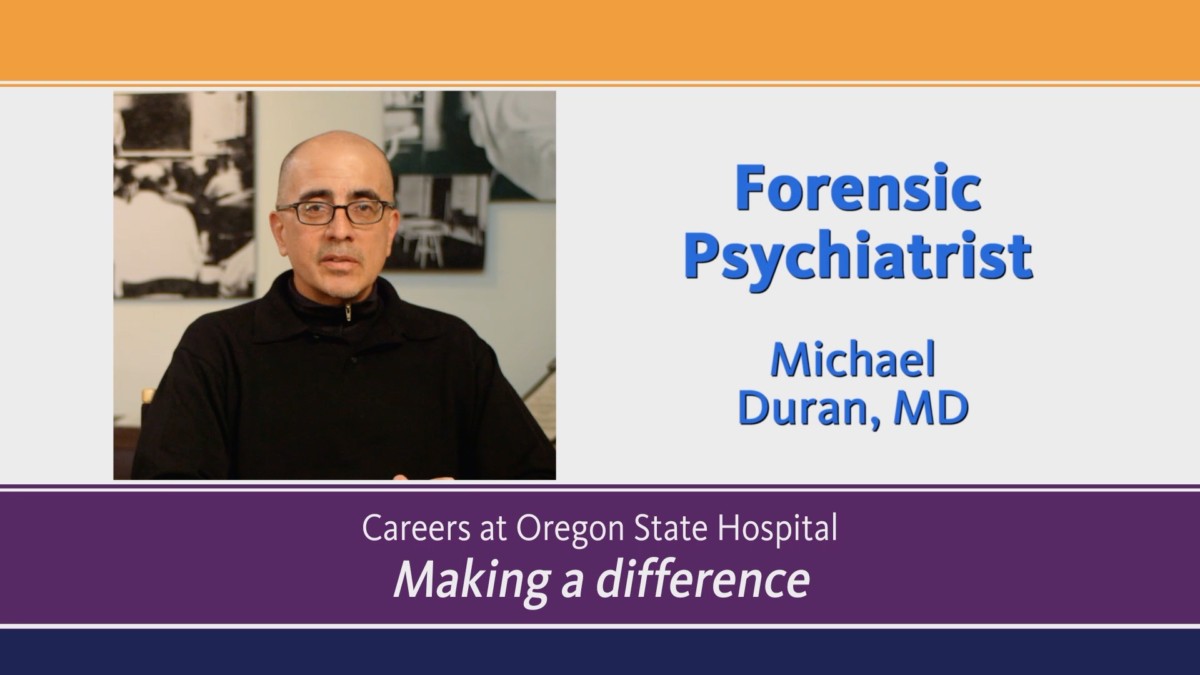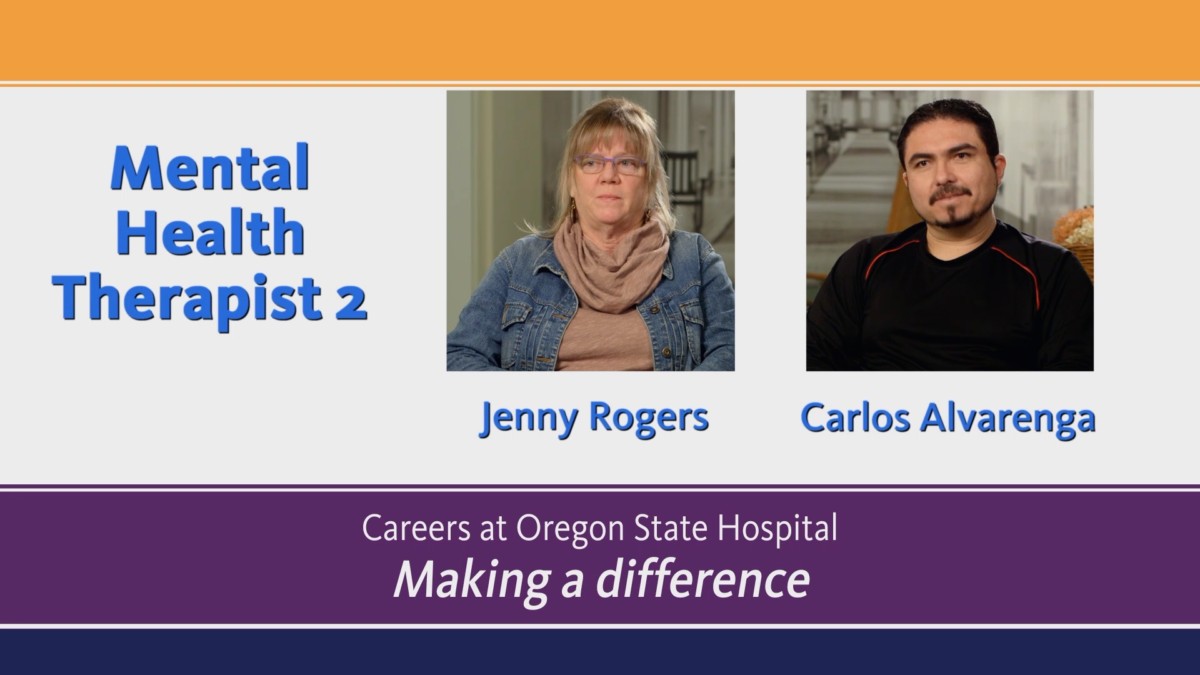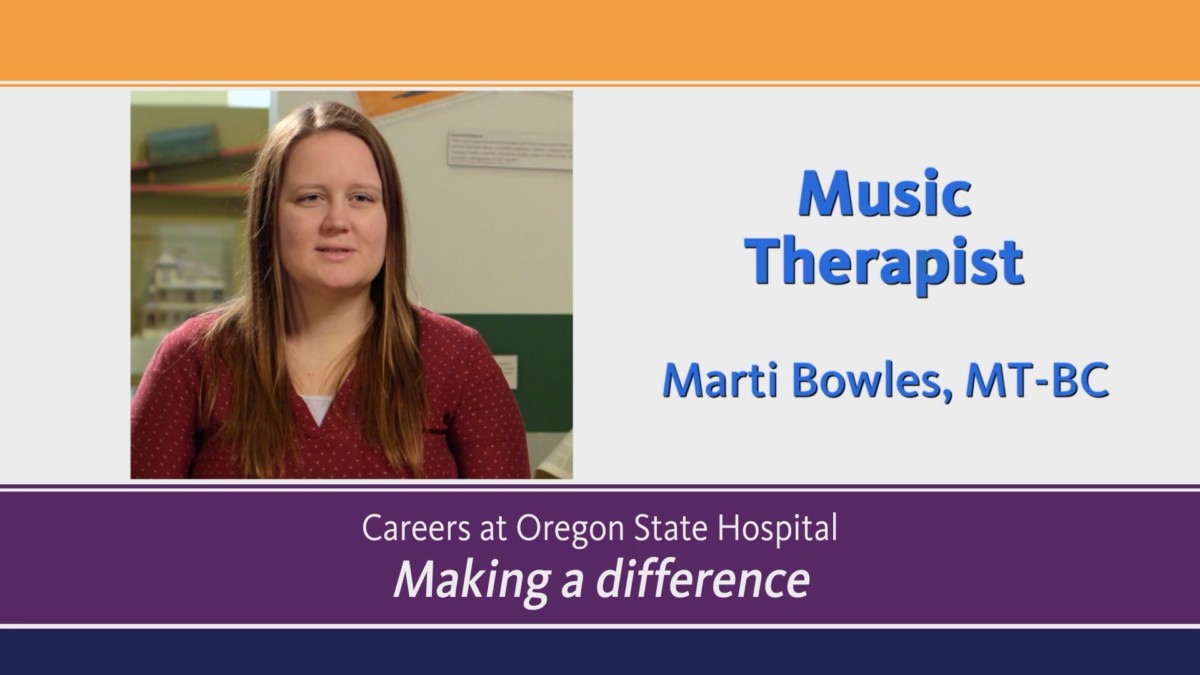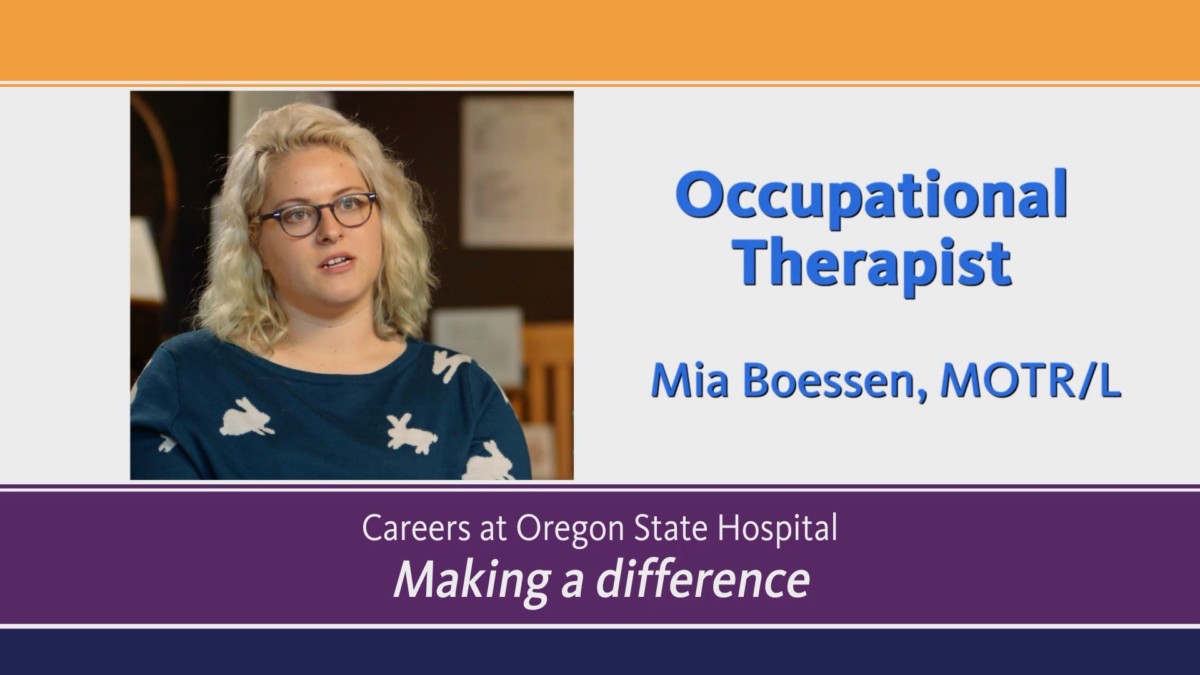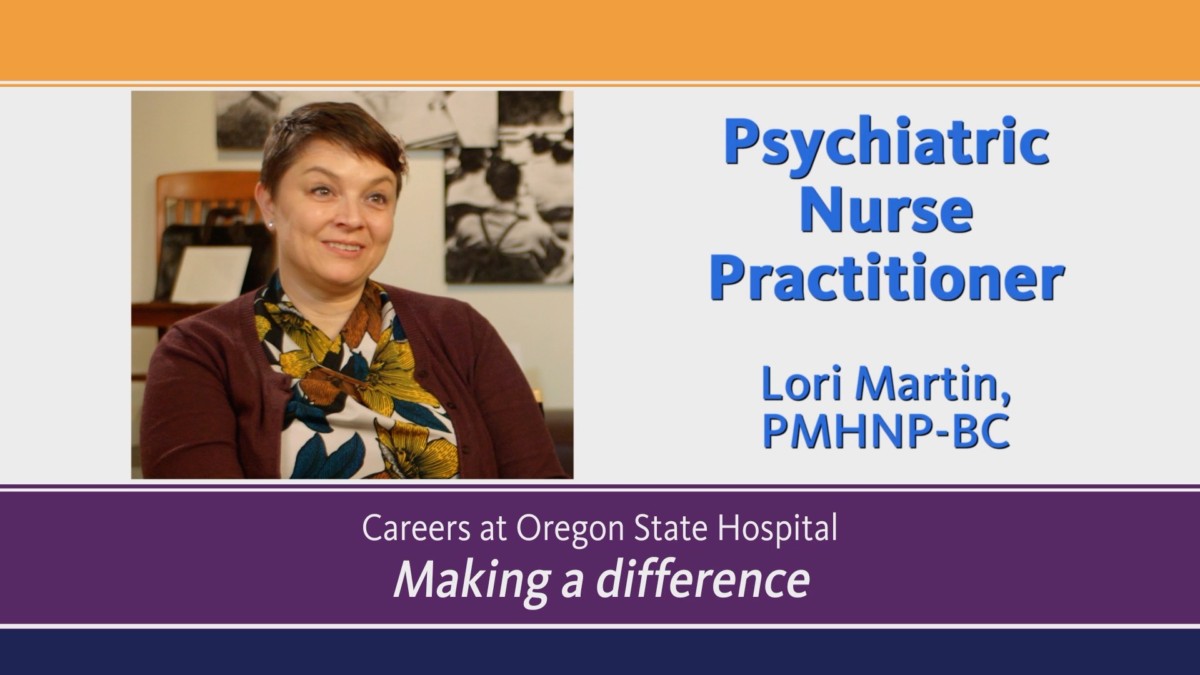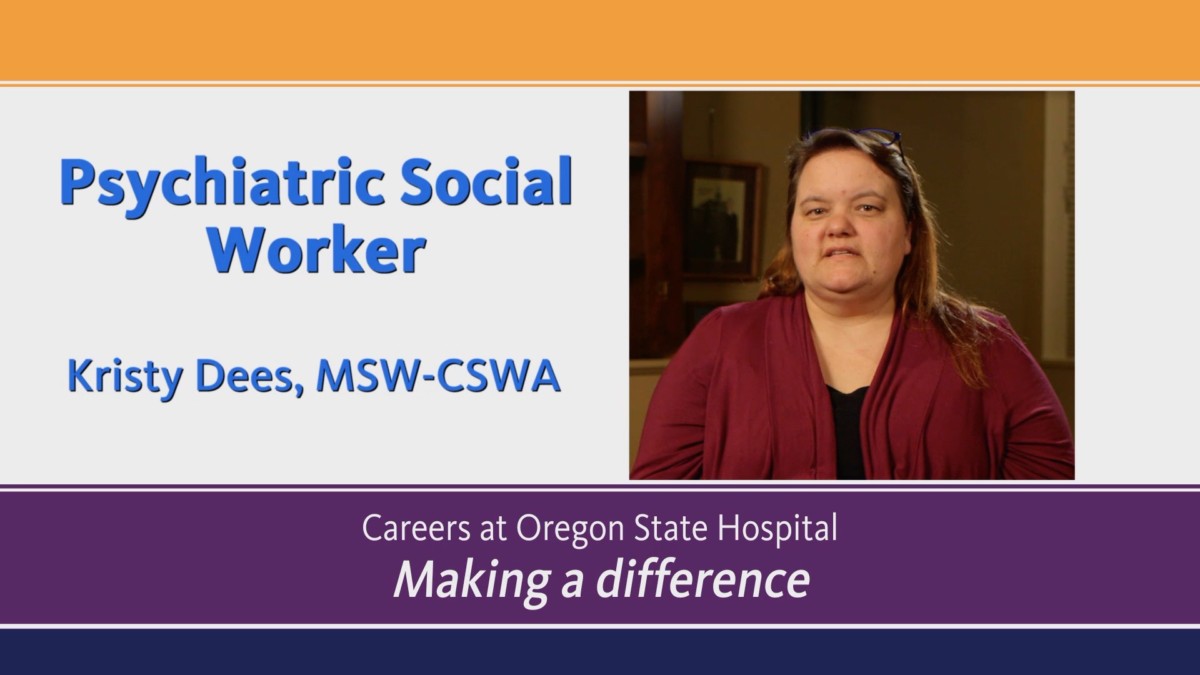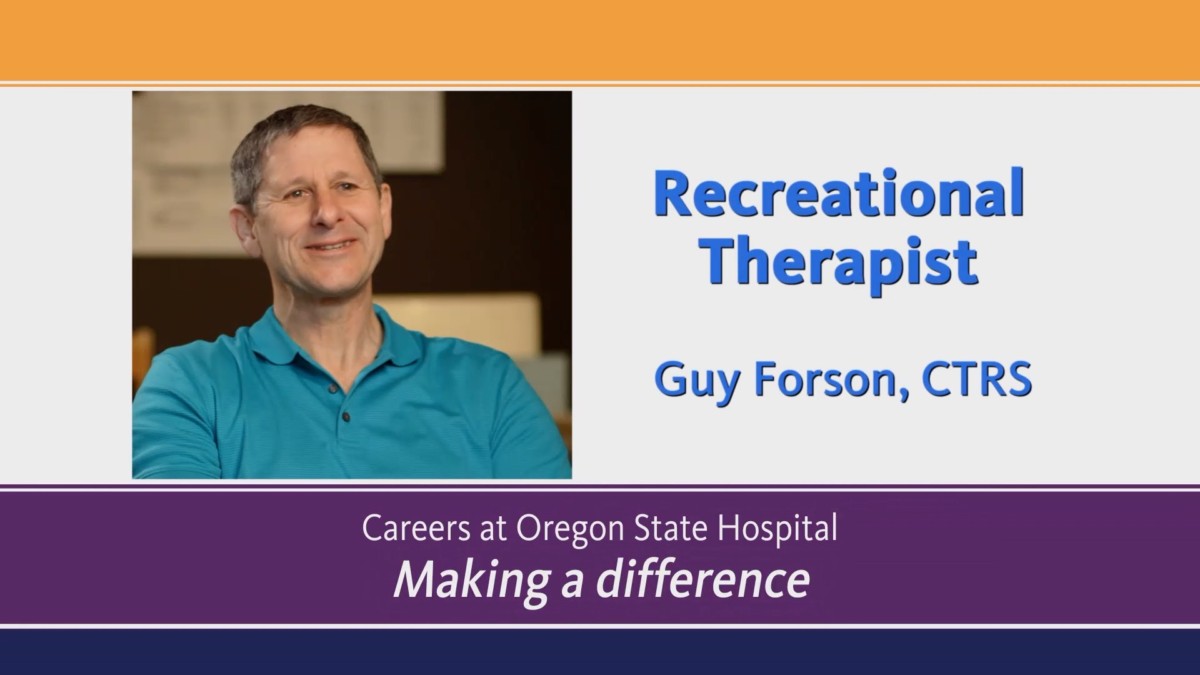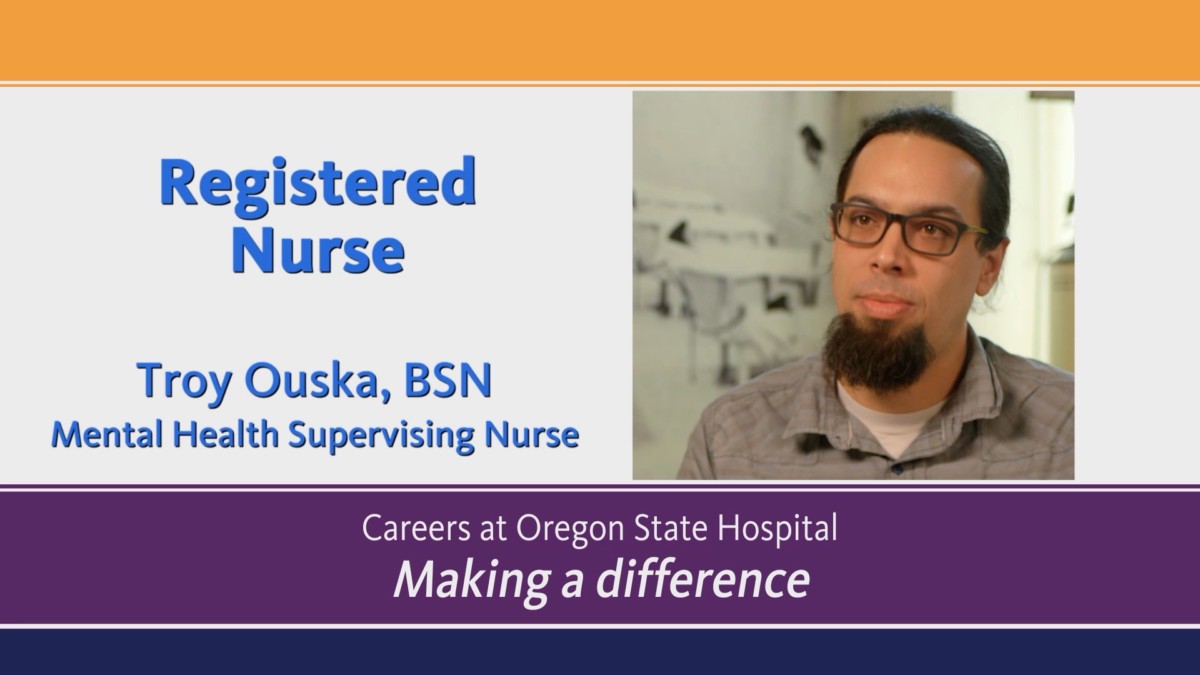Music Therapist
Careers in Mental Health
Marti Bowles, MT-BC
Musical Therapist
Generic Information
Overview
Music is a way to express oneself without words. Music Therapists at the Oregon State Hospital help patients access that expression every day. When words fail, patients can turn to the power of music to convey their thoughts and feelings within comfortable classroom spaces designed to facilitate expression. This creative medium helps patients in many ways including cognitive stabilization, emotional regulation, and stress management. As a part of interdisciplinary care teams, the Music Therapists develop care plans designed to promote overall patient progress toward healing.
The Music Therapist provides individualized assessments and treatment programs using music as therapy. These specialized treatment services are goal-oriented and directed toward rehabilitation and modification of specific physical, emotional, mental, or social behaviors. Based upon their clinical experiences with patients, they provide input to the patients’ recovery care plan. Music Therapists create a safe, comfortable space for patients to come together and create music as a recovery tool. They effectively support personal treatment goals and socialization.
History at OSH
The music therapist’s academic studies follow closely those of the music education major for the first two years, but then branch off into the fields of abnormal psychology, biology, social work and finally hospital orientation. -”Music Therapy Class Offered at Willamette”, Statesman August 16, 1963
The Willamette University Chapter of Mu Phi Epsilon, a professional music society, started offering music therapy services at OSH as early as 1961. Willamette University launched a formal music therapy program in 1963. This program continues to be of great benefit to the patients.
For more information on the educational pathway to this and other healthcare careers follow this Link to the Educational Resource page.
